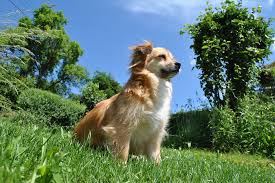 According to the ASPCA, just under half of all households in the United States have a dog and roughly one third have a cat. Overall, there are nearly 200 million pets sharing our homes, yards, and communities with us. When it comes to landscaping, pets have unique needs. To meet the needs of pets and their owners, landscaping businesses can carve out a segment for supplying and installing pet-friendly plants.
According to the ASPCA, just under half of all households in the United States have a dog and roughly one third have a cat. Overall, there are nearly 200 million pets sharing our homes, yards, and communities with us. When it comes to landscaping, pets have unique needs. To meet the needs of pets and their owners, landscaping businesses can carve out a segment for supplying and installing pet-friendly plants.
Why Are Pet-Friendly Plants Needed?
There are a few reasons that pet owners may be looking for pet-friendly plants. First among those reasons is safety. Many plants are toxic to pets, so pet owners will try to avoid them. Of course, pet owners can find it difficult to keep track of all the plants that are potentially toxic to their furry friends. If you sell plants that are specifically labeled as “pet friendly,” you can save pet owners the hassle of looking up the information themselves. You will also foster good will by demonstrating that you have their pets’ best interests in mind.
The second reason that pet owners may be looking for specific plants is to provide an oasis for their critters. Cats owners, for instance, may be looking for things like cat mint, wheatgrass, and other plants that cats can eat. Many pet owners will also be looking for plants that ward off irritating pests like fleas and ticks. Owners who keep their pets indoors may be interested in bringing a little bit of the outdoors in. This last point is particularly true of pet owners who live in apartments and condominiums.
How to Source Pet-Friendly Plants
Sourcing pet-friendly plants can be a difficult endeavor. The easiest way to get started is to look at the plants you already sell and determine which among them are safe for pets. You can label these plants as being “pet friendly” and you may even want to create a separate section for pet-friendly plants.
Once you determine which of your current offerings are safe for pets, you can start adding to your inventory by selecting plants that are not only safe for pets, but which pets particularly enjoy. You can look for plants that are universally liked by all pets, but you should also look into species-specific plants. In particular, you will want to focus on plants liked by animals that are common among your customer base.
You can determine which plants are safe for pets by visiting websites, your local library, or by chatting with your neighborhood veterinarian. The latter option has the added benefit of putting you in touch with another business in your community. This can help to generate sales and will certainly give the vet someone to recommend when clients ask about plants that their pets would enjoy.
Resources
http://www.aspca.org
